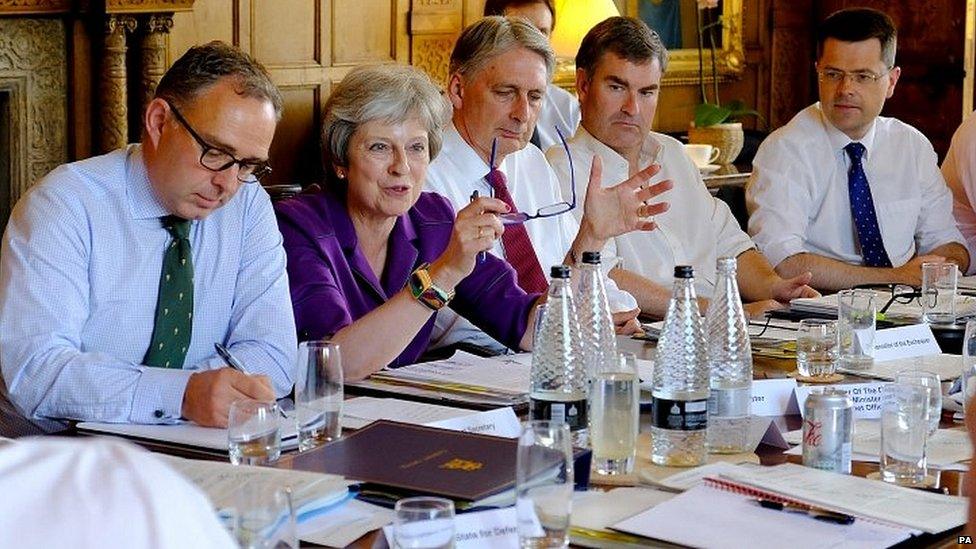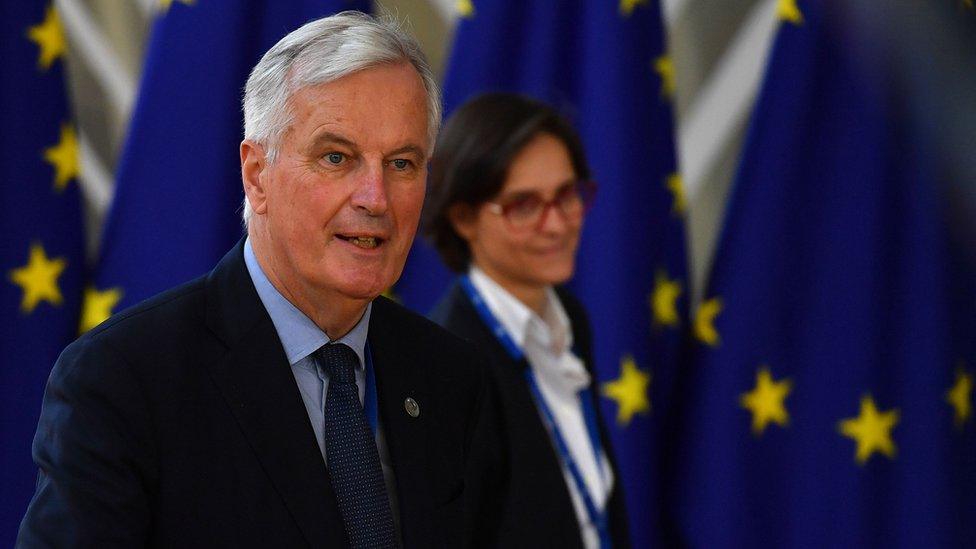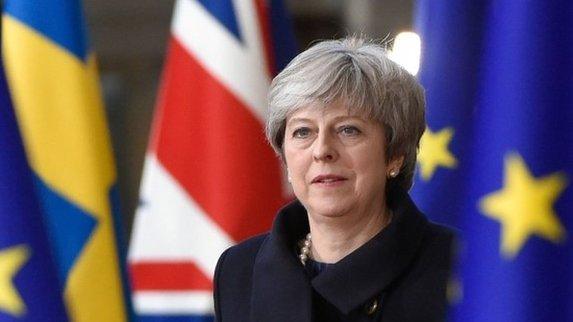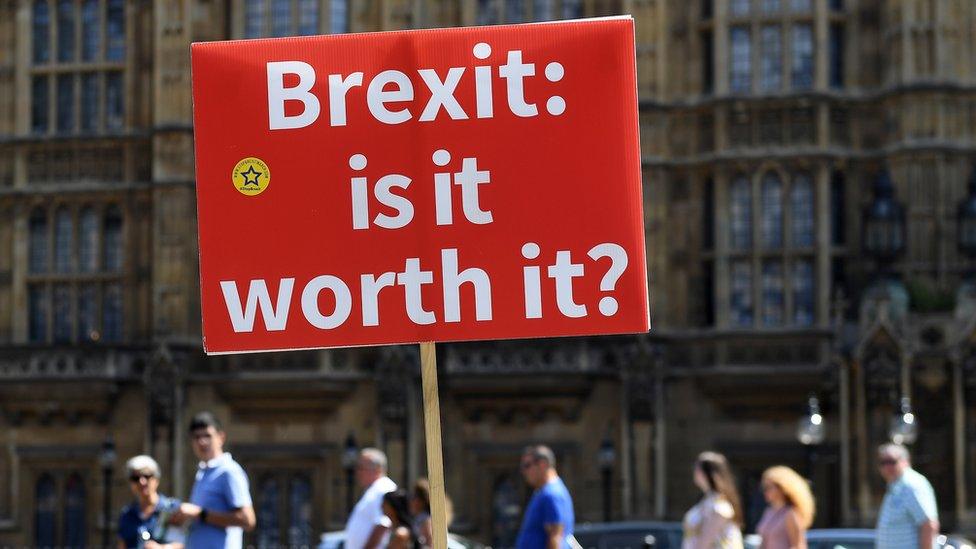Brexit White Paper promises 'frictionless' border
- Published
Speaker John Bercow and MPs were unhappy at the White Paper's late arrival
The Prime Minister's Brexit plan is made in England but heavily influenced by Northern Ireland.
Theresa May's problem has been how to take the UK out of EU while meeting her commitments about what will happen at Northern Ireland's frontiers.
She has promised to maintain a frictionless border in Ireland
At the same time, she has promised to prevent any new barriers between Northern Ireland and the rest of the UK.
Back in December when she made those commitments I wrote: "The UK government's guarantees on the Irish border seem to sharply limit the variety of Brexit that's now on offer.
"At at a minimum, it would seem that the UK would have to continue to follow EU rules on trade in goods and agriculture."
And that is more or less where we have ended up today.

The Prime Minister has come up with a proposal meaning goods would not have to be checked at the Irish border for reasons of customs or compliance with product standards.
The Prime Minister has come up with a proposal which would mean goods would not have to be checked at the Irish border for reasons of customs or compliance with product standards like food safety.
The White Paper states: "At the core of the UK's proposal is the establishment by the UK and the EU of a free trade area for goods.
"This would avoid friction at the border and ensure both sides meet their commitments to Northern Ireland and Ireland through the overall future relationship."
That means the UK would sign a treaty giving an upfront guarantee of ongoing harmonisation with EU rules.
Parliament will be responsible for passing those rules into law - but if it refuses the White Paper says there will be "consequences" - which would include reopening the whole issue of the border.
The UK would also continue to participate in EU agencies that provide authorisations for goods like chemicals, medicines and aerospace parts.
It would accept the rules of those agencies and contribute to their costs
There is also a plan for a very close customs relationship, the" Facilitated Customs Arrangement" which would see the UK apply the EU's tariffs and trade policy for goods intended for the EU.
The main problem with all of this is that the EU will find it very difficult, perhaps impossible, to accept.
"Indivisibility"
It's chief negotiator Michel Barnier has continually referred to the the "indivisibility" of four freedoms of the EU's single market.
In a speech this week he said: "Everybody will understand that we will protect the single market which is based on the indivisibility of what we call the four freedoms, of movement, for people, goods, services and capital."
"The British government has always had a very high degree of influence in building the single market. They know the rules. They know the indivisibility of the four freedoms."
The UK plan can be seen as trying to divide the freedom of movement of goods from those other three freedoms, which brings us back to the issue of the Northern Ireland backstop.
It is the arrangement which will apply if the Irish border cannot be kept as frictionless as it is now in the context of a wider deal.
The EU has proposed a backstop that would mean Northern Ireland staying in the EU customs union, large parts of the single market and the EU VAT system.

Michel Barnier has continually referred to the the "indivisibility" of four freedoms of the EU's single market
Michel Barnier, has continually emphasised that this backstop can only apply to Northern Ireland.
The Prime Minister has rejected the EU proposal saying it would threaten the constitutional integrity of the UK by creating a customs and regulatory border between Northern Ireland and the rest of the UK.
She has not yet produced a comprehensive UK version of the backstop and there is no sign of one in today's White Paper., external
But the EU, in particular the Irish government, is adamant that there must be an agreed backstop in the Withdrawal Agreement which will ease the UK's path out of the EU.
When the UK backstop is finally produced it will undoubtedly mean another big challenge for Theresa May.
- Published13 July 2018

- Published11 July 2018
